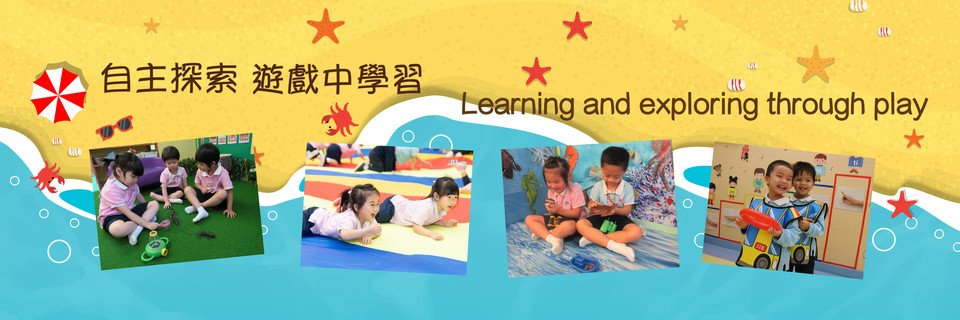Parents Zone

Parents’ feedback and discipline mentality helps develop children self-confidence
 Self-confidence is an essential cornerstone for children’s healthy growth; it profoundly impacts their learning, socialization and mental health. As a parent, your role is crucial in cultivating children’s self-confidence. Patience is key, not just in responding to children, but in examining and adjusting your disciplinary mentality. It is about facing the difficulties and challenges together with your children, fostering an attitude of acceptance and companionship for growth.
Self-confidence is an essential cornerstone for children’s healthy growth; it profoundly impacts their learning, socialization and mental health. As a parent, your role is crucial in cultivating children’s self-confidence. Patience is key, not just in responding to children, but in examining and adjusting your disciplinary mentality. It is about facing the difficulties and challenges together with your children, fostering an attitude of acceptance and companionship for growth.
As children's first teachers, parents play a crucial role in shaping their self-image and self-confidence. The responses of parents to their children's learning challenges are instrumental in this process. It's natural for parents to feel discouraged, disappointed, or even angry when their children struggle to understand or make mistakes. In such moments, it's important to consider your response. How will you handle the situation? Will you offer help or resort to scolding?
The role of parents is not only to raise the children but to help them grow. If you do everything for them, this will deprive them of learning opportunities and make them dependent, affecting their self-confidence and their sense of responsibility. It is crucial to understand that overprotection can harm your children's independence, making them less confident and responsible. On the contrary, if parents are overly strict, demanding their children do better, or even often blame them, this will lower their self-esteem and hinder their ability and confidence to learn independently. It is important to remember that your emotions, behaviours, and reactions as a parent should be a result of self-reflection. This self-reflection can empower you, helping you to understand your own uneasiness and anxiety, or your high expectations, and how these might be affecting your parenting.
Parents should pay more attention to their emotions and feelings; you may feel angry, worried, and uneasy, but what do you value most? We must be calm and avoid overly intervening, controlling or picking on children's behaviour. It is our responsibility to observe our children's abilities, behaviours and needs with a supportive smile. When we notice that our children need encouragement and help from adults, we can offer assistance and work with them to face the challenge to help them build their self-confidence.
Children’s perceptions play a crucial role in shaping their behaviour. As parents, it is important to be mindful of this influence. When you notice good behaviour in your children, acknowledge it with words and actions. This not only reinforces positive behaviour but also communicates to your children that you value and appreciate their efforts. For instance, 'You did very well! You picked up the toys without me reminding you, which mummy appreciates your help.' or 'I can see you are working hard in writing. You did very well.'
Encouragement is a key strategy for parents to help their children keep trying and acting to increase their ability. By focusing on their achievements rather than what they cannot do, parents can create a supportive environment where children feel safe to explore and learn. This approach lets children understand that with perseverance and hard work, they can achieve their goals. It is important for parents to appreciate their children's process, rather than constantly demanding and correcting their behaviour.
As parents, you play a crucial role in providing the necessary support and encouragement to your children. Your positive affirmations such as “You are improving!” and “I understand it is a bit difficult; we can try harder together!” Supports are more than just words. They are the building blocks of your children’s self-confidence, helping them face difficulties and reach their potential.
__________________________________________________________________
The art of discipline with both praise and power: balance of love and rules
 When disciplining children, there are different challenges; under ‘praise and power’, we will show love and the importance of rules by giving clear boundaries and finding the balance of love, care and following regulations to build parent-child interactive relationships and to develop self-discipline.
When disciplining children, there are different challenges; under ‘praise and power’, we will show love and the importance of rules by giving clear boundaries and finding the balance of love, care and following regulations to build parent-child interactive relationships and to develop self-discipline.
Praise: love and care
‘Love’ is the connection between parent and child. The warmth of love and care can build trust and safety, let the children know they can always have family support, and make connections in the family. Parents’ empathy, caring, hugging, holding hands, and spending quality time will establish a safe and attached relationship for children.
Through family interaction, try to listen and understand their feelings and thoughts and encourage them. When children show good behaviours, praise them in words and actions to express recognition of their efforts and help build a sense of self-worth and ability. On the contrary, when they encounter setbacks, parents should be more considerate and try to understand their feelings and thoughts and give them support, for example: ”I understand you are disappointed” and “I know you are angry now,” to express and show them that they are recognised, understood and accepted on their feelings and willing to face the challenges together with them.
Power: Boundary and rules enforcement
Each parent may have different expectations of their children. Setting rules is essential for conveying respect, responsibilities, safety, and awareness; setting clear and consistent family rules allows children to distinguish between good and destructive behaviours.
Family members communicate and follow the boundaries and rules; consistency and enforcement are the most important. Under different circumstances, the rules and core values should be consistent. When the children violate the rules, there will be consequences; it is not for punishment but to develop responsibilities. Therefore, the result of not obeying the rules is reasonable for reinforcement. For example, if a child spilt some milk, they must clean the spill alone, or delaying homework may result in shortened playtime. It is more effective to let children understand there is a natural
consequence rather than being punished physically or yelled at.
For enforcement, parents should be using a calm and firm attitude. Emotional blaming can only last a while and set a negative example for children. On the contrary, a calm and firm attitude conveys the seriousness of the rules and sets an example for emotional management. As parents, you are the emotional role models for your children. When a child still refuses to go to bed, you can express to the child that; ”I understand you still want to play, but now it is the bed time, you need to go to sleep.” This way, you express and understand their feelings, while also reinforcing your role as an emotional influencer.
The art of discipline: Praise and Power
Every child is unique and has their own personality and needs. It is important to remember that the discipline method should be adjusted to the child's temperament, age, and specific situation. This personalised approach helps you find the right balance of praise and power for your child. For instance, sensitive and introverted children may benefit from more considerate and supportive discipline, while outgoing and stubborn children may respond better to clear rules and boundaries.
Parents can predict what will happen based on their temperament and needs and prepare for the outcomes. For example, if you know your child will be grumpy when hungry, you can prepare some snacks; if you know your child will be tired easily, then plan a shorter trip or have breaks.
The main goal of discipline is cultivating children's intrinsic motivation and self-management; a balanced approach allows children to transition from external standard rules to intrinsic values, from parental control to self-management. Children will observe, imitate and learn from parents' behaviours. Therefore, parents need to set good examples, role models, and responsibilities; setting ideal behaviour models will help teach them values. In our daily lives, parents can explain to children the reason behind the family rules and encourage them to communicate and express their feelings and thoughts. This open line of communication fosters a sense of understanding and connection. In the art of discipline, we set boundaries in love and care; we have rules and standards but give support to focus on their efforts and strengths, not just on their mistakes.
Our goal of praise and power is not cultivating 'perfectly well-behaved' children but helping them become healthy, emotional, and self-managed individuals. Through praise and power, we provide a warm and consistent environment for children's growth and create better family time.
__________________________________________________________________
Cultivating children’s character starts with daily life
 Parents have a profound impact on their children’s character development. Role-modelling, storytelling, learning through games, and giving encouragement and support will help children build and cultivate good character in their daily lives.
Parents have a profound impact on their children’s character development. Role-modelling, storytelling, learning through games, and giving encouragement and support will help children build and cultivate good character in their daily lives.
1. Role modelling: Parents are their first teachers
Children are born with the ability to imitate; they often learn by observing and imitating their parents’ behaviour. As parents, you have a significant role in shaping your children's behavior. You can show and teach good behaviour through daily life, be a good model, abide by your promises to your children, and let them understand the importance of integrity. By doing so, you can cultivate good behaviour such as trustworthiness and honesty in your children.
2. Teach Value through sharing stories
Storytelling is not just a one-time activity, but a part of daily life. It is one of the most effective ways to instill values in children. By choosing appropriate stories about kindness, courage, and honesty, parents can create a routine of sharing and reading together. After reading, discussing the stories can further enhance their understanding and help them relate to similar experiences, reinforcing the importance of good character.
3. Through games to cultivate character
Different games can guide and teach good character in a pleasant environment. For example, parents can role-play different roles, such as doctors or teachers, to learn their responsibilities and the value of different roles; they can learn to care and be empathic. Group games can also develop team spirit and cooperation.
4. Encouragement and affirmation to build good character
Active encouragement and affirmation can effectively enhance children’s self-confidence. As a parent, there is no greater joy than discovering your children’s good behaviour in daily life and telling them directly through words and actions. When you observe your children take the initiative to help others, join in activities or help finish small tasks at home, it fills you with a sense of pride and happiness. This not only helps your children know their characteristics but also makes you feel fulfilled as a parent. For example, you can praise them so that they know they have good character: “I am happy to see that you are friendly and willing to help others,” “I am proud of you! you have been working hard and have put in effort to finish the puzzles,” “You did well, you have shown you are a responsible person and finished your task.”
The cultivation of children's good character requires careful guidance from parents. Through role modelling, sharing stories, learning through play, encouragement, and affirmation, parents can effectively cultivate and develop good character and teach good values and life attitudes in daily life.
__________________________________________________________________
Developing of problem-solving skills

The kindergarten stage is a critical period for young children to learn problem-solving skills, and parents play a vital role in the process, being the children's reference and learning objects. At this age stage, toddlers begin to encounter different problems. Socializing, learning, emotional processing, etc., are some topics that young children need to learn to solve. Many parents will encounter obstacles everywhere in the process and are confused about their children's behaviours.
One common problem is that parents find that toddlers tend to be less willing to share toys with others. In fact, at this time, parents can set an example for their children through their daily behaviours; parents can intentionally share some items with their children and explain the meaning of sharing in simple language. For example, parents can tell their toddlers, “Let’s share this biscuit, okay? I hope to eat something delicious with you.” Let their toddlers experience the joy of sharing in firsthand and understand that sharing this action can connect with language and help them build processing techniques on social issues.
Another common situation is that toddlers are likelier to argue when dealing with peers. When toddlers have arguments with other children, parents are sometimes eager to discuss with their children or are already angry. In hindsight, this fails to assist children in independent thinking and serves as a wrong example, allowing children to believe that using intense emotional expression can solve problems mistakenly. When intervening, parents should patiently listen to their children's descriptions, understand the ins and outs of things, and then teach their children how to resolve conflicts in a simple and easy-to-understand way. For example: "I know you are angry but hitting someone is wrong. Next time you can go to the teacher for help." It not only shows the child's understanding of the mood but also gives the child enough knowledge to deal with similar situations in the future, improving their problem-solving skills. In addition to guiding at home, parents can create more learning opportunities, such as participating in community activities with their children, parent-child activities in kindergarten or family gatherings, and allowing children to face different situations in a safe environment. The more such opportunities, the better the toddler's problem-solving skills will develop. It is worth mentioning that establishing a safe and supportive home environment is particularly important for improving early childhood problem-solving skills. When toddlers feel "love" and "security" at home, they are more confident and braver.
Parents can promote this sense of security by communicating with their children and sharing each other’s feelings. For example, every night before going to bed, parents can talk to their toddler about what happened today, understand what their toddler is thinking, and give positive responses and encouragement so that the toddler knows that the difficulty they have encountered is not complicated and that there are parents of support so that they can have the courage and willingness to try when dealing with complex problems in the future.
Each toddler builds problem-solving skills at a different pace, and some toddlers may need more time and support. Parents should remain patient, respect their toddler’s personality and development rhythm, and give them complete love and support. In such an environment, young children will naturally increase their interest in socializing and getting along with others and will be more likely to deal with different good and bad times in the days to come.
________________________________________________________________________________________________________________
Helping Children Manage Emotions: A Guide for Parents
There has been a growing concern among parents, schools, and educational authorities due to the increasing reports and news of middle and primary school students committing suicide. The mental and emotional well-being of children and adolescents has become a focal point. However, some parents may not fully understand why their children are experiencing emotional distress. While parents care tirelessly for their children round the clock, it may be assumed that stress and anxiety are primarily issues for parents since children don't have jobs or financial responsibilities. Nevertheless, parents' stress and emotional states can inadvertently affect their children's emotions.
Young children have a keen perception of others' emotions. By ten weeks old, infants can respond to their mother's expressions and tones, including joy, sadness, anger, and more. When parents are emotionally unstable, it directly impacts their children's emotions. Therefore, how parents manage their own emotions directly influences how their children express and regulate their emotions.
So, how can parents help children learn emotional management? Firstly, it is crucial to help children understand and recognize different emotions. Before learning emotional management, it is essential to first identify and accept these emotions. For instance, when children cry or display anger, parents should first understand the reasons behind their tears instead of immediately suppressing these emotions. Forcing emotions to be suppressed can be harmful to mental and emotional well-being.
Emotions themselves are not inherently right or wrong; however, finding appropriate ways to address them is crucial. Parents can start by positively expressing their own emotions and communicating their feelings to their children. When faced with situations alongside their children, parents should share their emotions first, then seek to understand their children's thoughts and feelings. Additionally, parents should encourage their children to express their feelings. When children feel angry or unhappy, parents can initially prompt them to speak up about their feelings, understand the underlying reasons together, and find suitable ways to release their emotions.
Moreover, parents can teach children various emotional regulation techniques like deep breathing, staying hydrated, and engaging in stress-relief activities. These strategies help children find suitable methods to calm themselves when emotions are intense, gradually enhancing their emotional management skills. Parents can guide and encourage their children to use these techniques when needed, providing support, and offering motivation and praise throughout the process.
The emotional management of parents significantly influences and supports their children's emotional development. Positive expression and regulation of emotions by parents have a beneficial impact on their children's abilities to express and regulate emotions, as well as enhancing their emotional security.
Note: Attached herewith is the "Stages of Emotional Development and Recommendations for Children", crafted by Kindergarten Social Work Services for the 145th anniversary of Po Leung Kuk.
Each child follows a unique trajectory in their emotional development. Therefore, parents/caregivers need to adapt and cater to their individual needs and developmental progress. Keeping open communication with children, providing support, and nurturing emotional bonds are essential for fostering healthy emotional development.
Below are developmental stages and suggestions for children at different ages (Denham, 1998; Thompson, 1994), for parents or caregivers to refer to:
Age | Emotional Development | Recommendations |
2-3 Years Old |
|
|
3-4 Years Old |
|
|
Age | Emotional Development | Recommendations |
4-5 Years Old |
|
|
5-6 Years Old |
|
|
In Summary: Uniting Emotions, Uniting Lives
By offering sufficient emotional support to children, they come to understand that emotions are neither right nor wrong, but rather can be accepted and valued by parents/caregivers. The more individuals accept their emotions, the better they can find ways to manage them.
________________________________________


